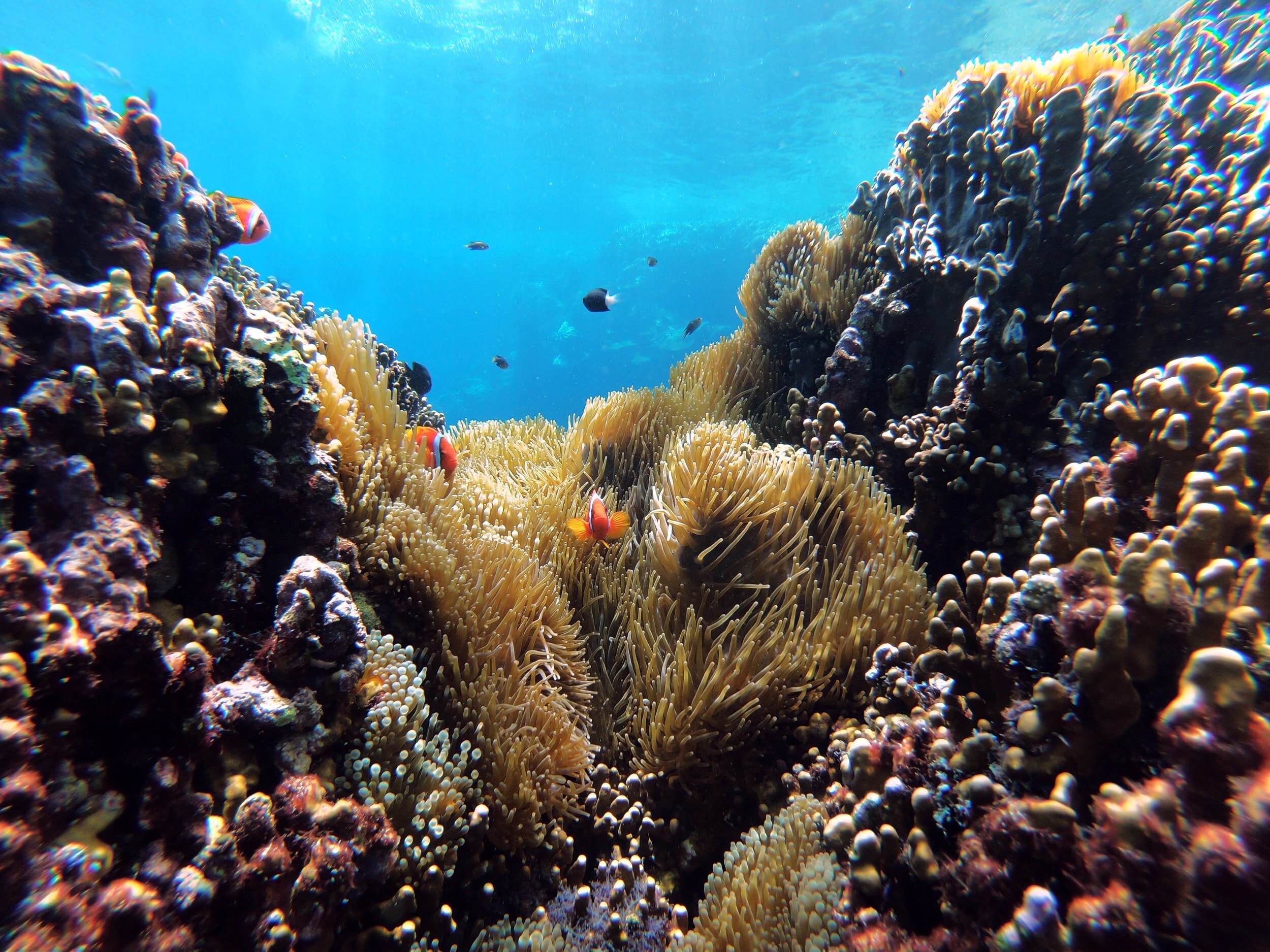
Ocean Acidification
Ocean Acidification
A major environmental threat to ocean ecosystems around the world, ocean acidification is the continued decrease in the pH of the Earth’s oceans this occurs as a result of the increased uptake of atmospheric Carbon Dioxide by these waterbodies. The oceans have acted as a natural sink for carbon dioxide for since the industrial revolution when there was an uptake in the amount of carbon dioxide within the atmosphere, generated through processes such as burning fossil fuels. As there was an increase in atmospheric carbon dioxide more is dissolved into the surface water, the carbon dioxide rich water can then either mix or sink into the deep sea as it cools down where it will be sequestered for hundreds if not thousands of years as it forms a dence layer of liquid Carbon dioxide in deeper areas of the sea as a result of increased pressure.
However, as anthropogenic carbon emissions continue to increase the response of the oceans also changes as seen with changes to the chemisty of sea water itself. As the oceans dissolve the athmospheric carbon dioxide the molecules begin to react with the sea water forming Carbonic acid that then further breaks down into hydrogen ions and carbonate ions the increase in the concentration of hydrogen ions leads to ocean acidification with the current ocean pH of 8.1 reducing to a more acidic levels. The process of this occuring not only leads to a reduction in the pH of the oceans from their current slightly basic pH but also has major implications for marine life.
Environmental Impact
The changes in ocean chemistry can have direct and indirect impacts on marine organisms and their habitats. One of the largest environmental impacts of ocean acidification is the impact that the chemical changes in the ocean have on the production of shells and plates for marine life out of calcium carbonate. The process of calcification uses carbonate ions to form calcium carbonate that is used to create structures such as shells and plates such as in coccoliths, single celled algae formed from calcium carbonate plates. With changes in the composition of the oceans chemistry, the calcium carbonate structures become susceptible to dissolution, which could potentially lead to the collapse of food chains as these organisms are at the bottom of the food chain supporting all the life above them.
Ocean acidification also contributes to changes in the health of organisms throughout the oceans with metabolic changes to species such as the Humboldt squid and impacted immune systems among species of mussels. The changes in ocean chemistry also greatly impact organisms such as coral that act as a living habitat for many species within coral reefs, as ocean acidification leads to coral bleaching with the loss of the symbiotic relationship with the algae that provides 90% of the energy for coral species trough photosynthesis, leading to the drastic loss of these ecosystems.
The increased uptake in carbon dioxide within the ocean waters also has wider environmental implications with increases in ocean temperature also occurring as a result of the sequestering of the carbon dioxide. The increase in ocean temperature can greatly impact the function of ecosystems and migratory patterns of species within the oceans but also contribute to increases in natural disasters such as hurricanes. Increases in sea-surface temperatures contribute not only to increases in the frequency of tropical storms but also the magnitude of these events meaning that more severe tropical storms will occur more often, leading to a larger impact on the environment and humans in the affected regions.
Mitigation
To mitigate ocean acidification and limit the chemical changes to the oceans anthropogenic climate change must be addressed on a global scale with reductions in the use of fossil fuels that release carbon dioxide into the atmosphere and in turn reducing the uptake of this carbon dioxide by the oceans themselves. However, the process of ocean acidification will continue to occur with the presence of atmospheric emissions therefore if drastic reductions in fossil fuel usage do not occur the process will continue to occur increasing the absorption of carbon dioxide by ocean waters leading to major negative impacts throughout the marine ecosystems of the Earth.
